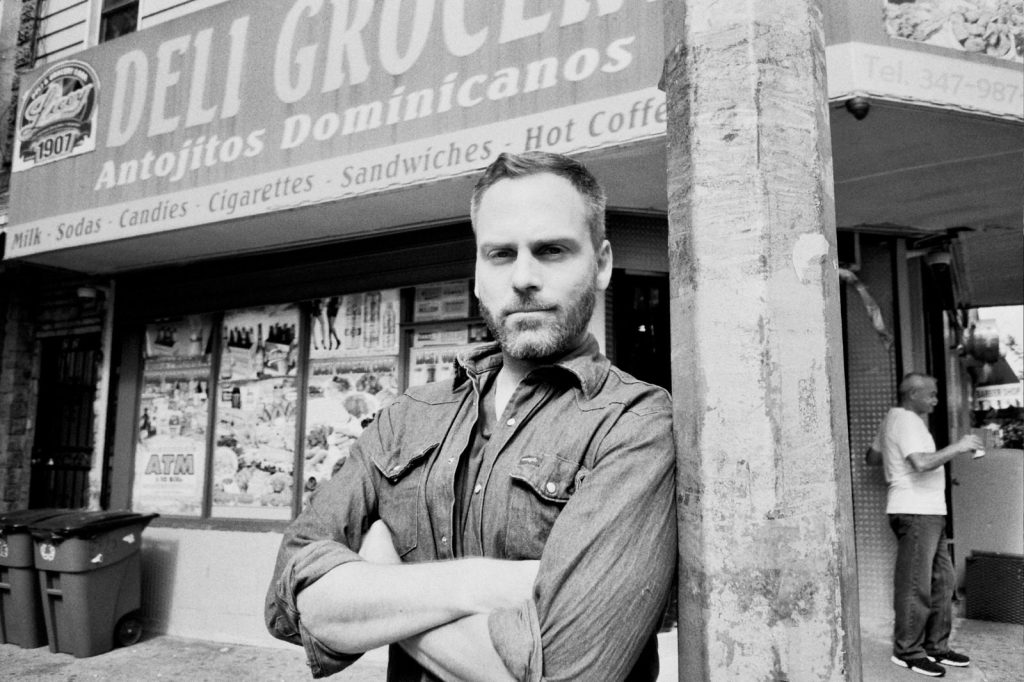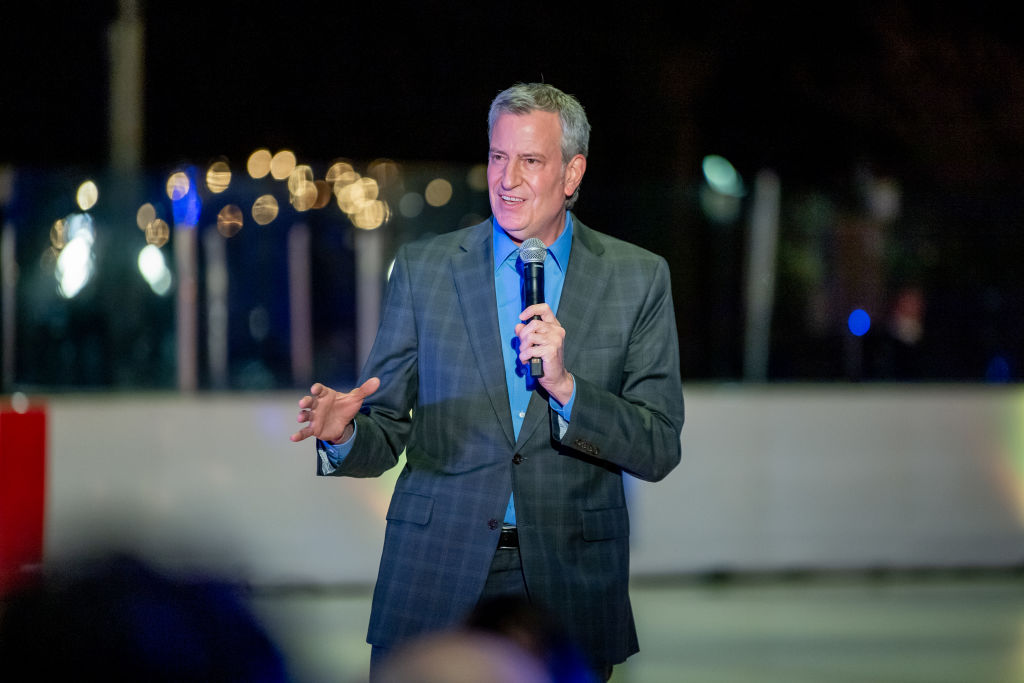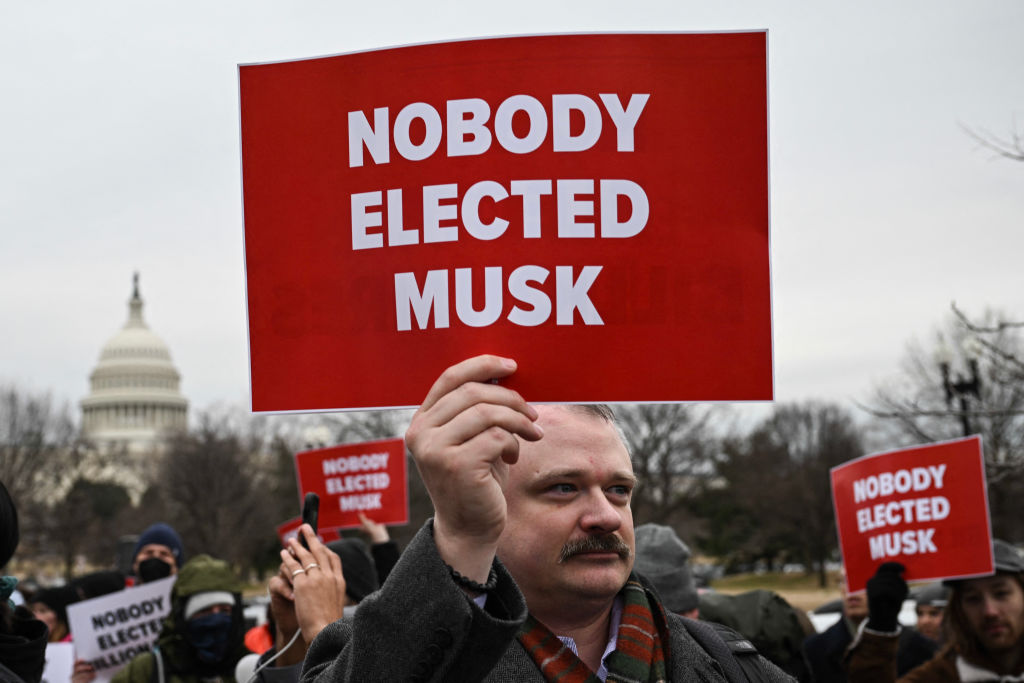This article is in The Spectator’s February 2020 US edition. Subscribe here.
Last summer, at a secretive dinner in Manhattan, I heard a New York Times staffer regale our table with some tales. He told us about how a dozen or so people had, like him, faced the most perilous horror imaginable for a blue checkmark Twitter person. They’d been canceled.
For some, it was a tweet. For others, posing in a photograph with a Republican, or clicking ‘like’ on a Facebook post written by a known transphobe, or perhaps expressing an unhealthy familiarity with the work of Milton Friedman. For the Times staffer, he deigned to question gender theory in the office and sent half his team hyperventilating into paper bags and the other privately giving him the thumbs up.
‘But you still work there?’ I asked. He did, and recently got a promotion. ‘You’re employable? There was no public tar and feathering? You didn’t lose anything? You still have friends? And now, what, you want a medal?’ I asked, realizing as I said these words that I was in danger of being canceled from this party.
I’d stumbled upon something I hadn’t realized existed: canceled chic. Being canceled — or at least having flirted with a transgression against militantly progressive opinion — gives a media person a certain edge, which leads to another phenomenon: cancel envy. Liberal journalists are so desperate to be canceled they’ve begun to form secret societies around the theme. At these meetings, they compete over who came closest to the ostracization abyss. Nobody wants to fall in, though.
I soon figured out that the other diners also retained cushy bylines in glossy publications despite having sinned. The dinner wasn’t a meeting of minds, more a support group for journalists who’d had a thrilling brush with the thought police.
Each seemed to have arrived at a new identity. They now called themselves ‘centrists’. They’d become Open Minded, Buddha-like, no longer ashamed to plop down a Sam Harris book on the coffee table before guests arrive or admit to having watched a Jordan Peterson video once.
These are the same people who will guiltlessly ask you for a cigarette after a few drinks, then toss it out halfway through without inhaling. They so desperately want to be cool but have an overriding self-preservation mechanism that is the antipode of rebelliousness. When I joked I should write a piece about this secret society, a chill rocked the air. In their minds these people might be libertines, but their precious careers and party invitations must come first.
‘You actually like Trump?’ the Times staffer later asked me. ‘I’ve never met anyone who likes him, unironically,’ he said. There was a time I was tolerant toward this sort of mildly anti-left lefty. Now, when I hear someone call themselves ‘open-minded’ I reach for my taser. There also was a time I carried business cards to dinners like this, practiced a dehumanizing ritual called ‘networking’, and wanted media peers to like me. They never did.
I was an early sacrifice of the Trump presidency, before the term ‘canceled’ was coined. It’s a stupid term, if you ask me, one of those irritating, buzzy middle-class media jargon fixations that stick around for a few more months until the thinkpiece well has been sucked dry. It’s like ‘tiger moms’, ‘mansplaining’, ‘disruptor’, or ‘Nate Silver’.
In early 2017, I penned a piece for the New York Post speaking out against the excesses of the media on the left. I was immediately fired from all my jobs, including as editor-at-large of Out magazine and the Advocate. I lost 100 percent of my friends and contacts in Brooklyn, where I still live. Before then, I’d been foolish enough to believe that the journalists I admired were like me: innately curious story-lovers dedicated to inching ever closer to something called the truth. I kept my nose down, focused on my work, enjoyed a rich life with hilarious friends and kept my politics to myself, believing that’s what good journalists ought to do.
I never would have written the Post story had my boss at Out, Aaron Hicklin, along with the entire editorial staff, not exhibited full-blown Trump derangement syndrome on their social media accounts. I figured, if they can speak their minds, I can too. ‘You’re compromised now,’ Hicklin told me, without a hint of irony, when he fired me. I was surprised. Six months earlier, when I wrote an indisputably nuanced and balanced profile of right-wing provocateur Milo Yiannopoulos in a 5,000-word feature for the magazine, Hicklin called me the night before publication to say his bosses wanted to kill the story. He told me he threatened to quit if they did. Management and editorial reached a compromise: a trigger warning at the top of the story. When the gay left had a nuclear meltdown after it ran, Hicklin had my back.
No one, including me, has ever been upset by severed ties with Out, an industry pillar of shadiness and non-payment that continues to get tossed around by investors like an unwanted bottom at an orgy. I was, however, flummoxed, and continue to be, that the people I loved most, who’d been indispensable for over a decade, could dump me so easily. Forgiveness and the high road are sometimes fine, but the rich and enduring hatred I have for the incurious traitors and fustian cowards I once called friends is considerably more satisfying.
What those with cancel-envy fear most is that sort of chain-reaction of professional death in the gossipy, incestuous media world to which they cling. My book agent also dropped me after the Yiannopoulos story. He was cash-cow Amy Schumer’s agent, too, and because Yiannopoulos was often mean to Schumer, and I wasn’t sufficiently mean to Yiannopoulos, I had to go. This is how the cabal works and if you buy into it, you’ll always be at its mercy.
This article is in The Spectator’s February 2020 US edition. Subscribe here.

























